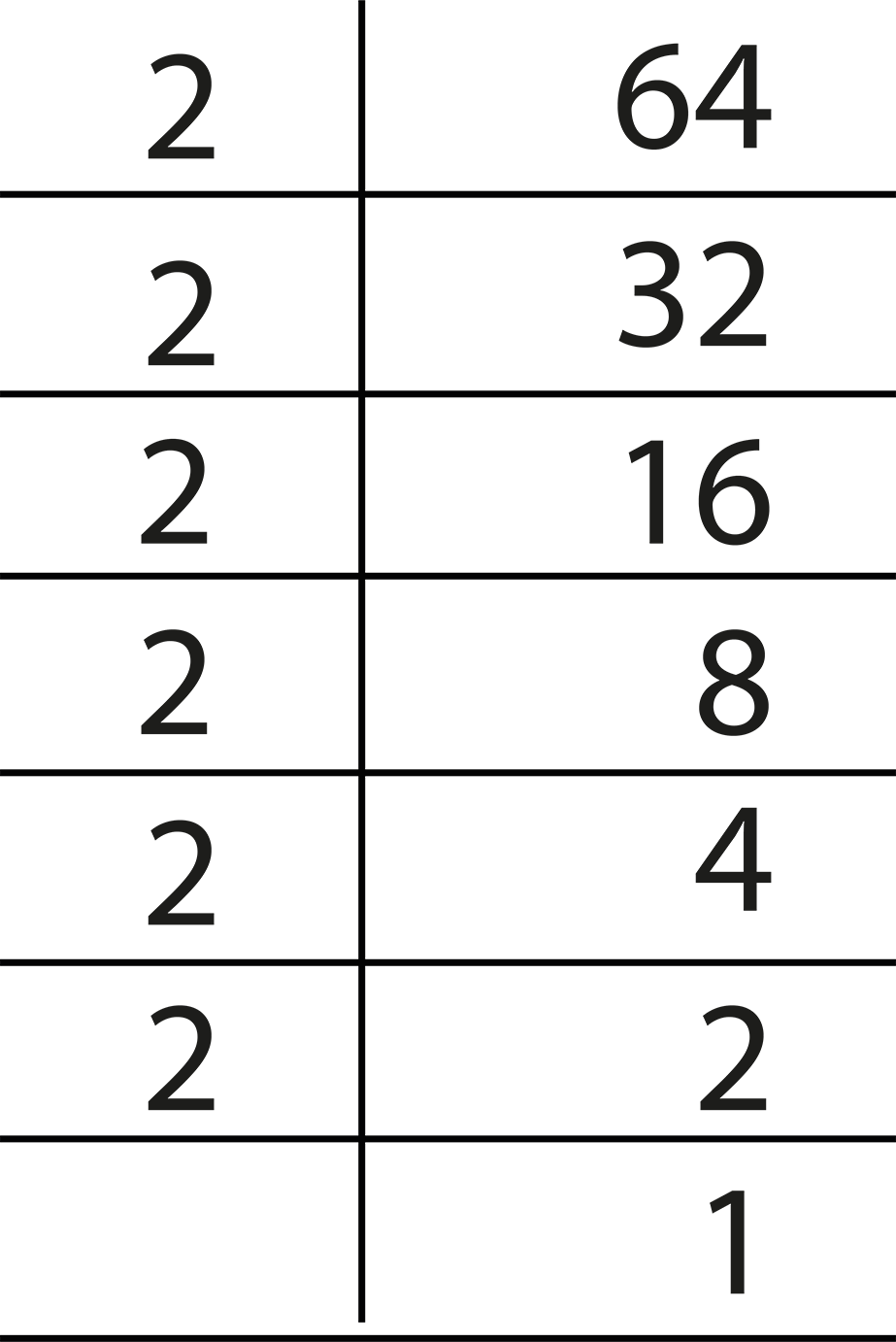
Exponents And Powers Class 7 Questions and Answers - Free PDF Download
The Class 7 Maths Chapter 11 Exercise 11.2 Solutions focuses on solving problems related to the use of exponents. Exponents help us to express large numbers in a simpler form, making calculations easier. Class 7 Maths NCERT Solutions Chapter 11 Exercise 11.2 will guide students through various problems where they will learn how to simplify expressions using exponents, compare numbers with exponents, and apply the rules of exponents in different mathematical contexts. Students can download the revised Class 7 Maths NCERT Solutions from our page which is prepared so that you can understand it easily.
 Table of Content
Table of ContentClass 7 Chapter 11 Maths Exercise 11.2 Solutions are aligned with the updated Class 7 Maths Syllabus guidelines, ensuring students are well-prepared for exams.
Glance on NCERT Solutions Maths Chapter 11 Exercise 11.2 Class 7 | Vedant
NCERT Solution for Class 7 Maths NCERT Solutions Chapter 11 Exercise 11.2 covers topics such as Laws Of Exponents and Miscellaneous Examples Using The Laws Of Exponents.
Laws of Exponents introduces the fundamental rules for working with exponents, including the product of powers rule, the quotient of powers rule, the power of a power rule, and the power of a product rule.
Understanding these laws is essential for simplifying expressions involving exponents.
In this chapter, students will apply the laws of exponents to solve various problems.
Class 7 Chapter 11 Maths Exercise 11.2 includes simplifying complex expressions, comparing numbers with exponents, and solving real-world problems that involve exponential calculations.
Class 7 Maths Chapter 11 Exercise 11.2 Solutions covers 5 fully solved questions and solutions.
Access NCERT Solutions for Maths Class 7 Chapter 11 - Exponents and Powers
Exercise 11.2
1. Using laws of exponents, simplify and write the answer in exponential form:
i) ${3^2} \times {3^4} \times {3^8}$
Ans: The given expression is: ${3^2} \times {3^4} \times {3^8}$
By laws of exponents, we have ${a^m} \times {a^n} = {a^{m + n}}$ .
So, we can write the given expression as,
${3^2} \times {3^4} \times {3^8} = {3^{\left( {2 + 4 + 8} \right)}}$
${3^2} \times {3^4} \times {3^8} = {3^{14}}$
Hence, the required answer is ${3^2} \times {3^4} \times {3^8} = {3^{14}}$.
ii) ${6^{15}} \div {6^{10}}$
Ans: The given expression is: ${6^{15}} \div {6^{10}}$
By laws of exponents, we have ${a^m} \div {a^n} = {a^{m - n}}$ .
So, we can write the given expression as,
${6^{15}} \div {6^{10}} = {6^{\left( {15 - 10} \right)}}$
${6^{15}} \div {6^{10}} = {6^5}$
Hence, the required answer is ${6^{15}} \div {6^{10}} = {6^5}$.
iii) ${a^3} \times {a^2}$
Ans: The given expression is: ${a^3} \times {a^2}$
By laws of exponents, we have ${a^m} \times {a^n} = {a^{m + n}}$ .
So, we can write the given expression as,
${a^3} \times {a^2} = {a^{\left( {3 + 2} \right)}}$
${a^3} \times {a^2} = {a^5}$
Hence, the required answer is ${a^3} \times {a^2} = {a^5}$.
iv) ${7^x} \times {7^2}$
Ans: The given expression is: ${7^x} \times {7^2}$
By laws of exponents, we have ${a^m} \times {a^n} = {a^{m + n}}$ .
So, we can write the given expression as,
${7^x} \times {7^2} = {7^{x + 2}}$
Hence, the required answer is ${7^x} \times {7^2} = {7^{x + 2}}$.
v) ${\left( {{5^2}} \right)^3} \div {5^3}$
Ans: The given expression is: ${\left( {{5^2}} \right)^3} \div {5^3}$
By laws of exponents, we have ${\left( {{a^m}} \right)^n} = {a^{m \times n}}$
So, we can write the given expression as,
${\left( {{5^2}} \right)^3} \div {5^3} = {5^{\left( {2 \times 3} \right)}} \div {5^3}$
${\left( {{5^2}} \right)^3} \div {5^3} = {5^6} \div {5^3}$
By laws of exponents, we also have ${a^m} \div {a^n} = {a^{m - n}}$
${\left( {{5^2}} \right)^3} \div {5^3} = {5^{6 - 3}}$
${\left( {{5^2}} \right)^3} \div {5^3} = {5^3}$
Hence, the required answer is ${\left( {{5^2}} \right)^3} \div {5^3} = {5^3}$
vi) ${2^5} \times {5^5}$
Ans: The given expression is: ${2^5} \times {5^5}$
By laws of exponents, we have ${a^m} \times {b^m} = {\left( {a \times b} \right)^m}$.
So, we can write the given expression as,
${2^5} \times {5^5} = {\left( {2 \times 5} \right)^5}$
${2^5} \times {5^5} = {10^5}$
Hence, the required answer is ${2^5} \times {5^5} = {10^5}$.
vii) ${a^4} \times {b^4}$
Ans: The given expression is: ${a^4} \times {b^4}$
By laws of exponents, we have ${a^m} \times {b^m} = {\left( {a \times b} \right)^m}$ .
So, we can write the given expression as,
${a^4} \times {b^4} = {\left( {a \times b} \right)^4}$
Hence, the required answer is ${a^4} \times {b^4} = {\left( {a \times b} \right)^4}$ .
viii) ${\left( {{3^4}} \right)^3}$
Ans: The given expression is: ${\left( {{3^4}} \right)^3}$
By laws of exponents, we have ${\left( {{a^m}} \right)^n} = {a^{m \times n}}$
So, we can write the given expression as,
${\left( {{3^4}} \right)^3} = {3^{\left( {4 \times 3} \right)}}$
${\left( {{3^4}} \right)^3} = {3^{12}}$
Hence, the required answer is ${\left( {{3^4}} \right)^3} = {3^{12}}$.
ix) $\left( {{2^{20}} \div {2^{15}}} \right) \times {2^3}$
Ans: The given expression is: $\left( {{2^{20}} \div {2^{15}}} \right) \times {2^3}$
By laws of exponents, we also have ${a^m} \div {a^n} = {a^{m - n}}$
$\left( {{2^{20}} \div {2^{15}}} \right) \times {2^3} = {2^{\left( {20 - 15} \right)}} \times {2^3}$
$\left( {{2^{20}} \div {2^{15}}} \right) \times {2^3} = {2^5} \times {2^3}$
By laws of exponents, we have ${a^m} \times {a^n} = {a^{m + n}}$ .
So, we can write
$\left( {{2^{20}} \div {2^{15}}} \right) \times {2^3} = {2^{5 + 3}}$
$\left( {{2^{20}} \div {2^{15}}} \right) \times {2^3} = {2^8}$
Hence, the required answer is $\left( {{2^{20}} \div {2^{15}}} \right) \times {2^3} = {2^8}$.
x) ${8^t} \div {8^2}$
Ans: The given expression is: ${8^t} \div {8^2}$
By laws of exponents, we have ${a^m} \div {a^n} = {a^{m - n}}$ .
So, we can write the given expression as,
${8^t} \div {8^2} = {8^{t - 2}}$
Hence, the required answer is ${8^t} \div {8^2} = {8^{t - 2}}$.
2. Simplify and express each of the following in exponential form:
i) $\dfrac{{{2^3} \times {3^4} \times 4}}{{3 \times 32}}$
Ans: The given expression is $\dfrac{{{2^3} \times {3^4} \times 4}}{{3 \times 32}}$
$32$can be written as,
$32 = {2^5}$
Also $4$ can be written as,
$4 = {2^2}$
Then the given expression becomes,
$\dfrac{{{2^3} \times {3^4} \times 4}}{{3 \times 32}} = \dfrac{{{2^3} \times {3^4} \times {2^2}}}{{3 \times {2^5}}}$
By laws of exponents, we have ${a^m} \times {a^n} = {a^{m + n}}$ .
So, we can write
$\dfrac{{{2^3} \times {3^4} \times {2^2}}}{{3 \times {2^5}}} = \dfrac{{{2^{3 + 2}} \times {3^4}}}{{3 \times {2^5}}}$
$\dfrac{{{2^3} \times {3^4} \times {2^2}}}{{3 \times {2^5}}} = \dfrac{{{2^5} \times {3^4}}}{{3 \times {2^5}}}$
By laws of exponents, we have ${a^m} \div {a^n} = {a^{m - n}}$ .
So, we can write
$\dfrac{{{2^3} \times {3^4} \times {2^2}}}{{3 \times {2^5}}} = {2^{5 - 5}} \times {3^{4 - 1}}$
$\dfrac{{{2^3} \times {3^4} \times {2^2}}}{{3 \times {2^5}}} = {2^0} \times {3^3}$
We have ${a^0} = 1$
$\dfrac{{{2^3} \times {3^4} \times {2^2}}}{{3 \times {2^5}}} = 1 \times {3^3}$
$\dfrac{{{2^3} \times {3^4} \times {2^2}}}{{3 \times {2^5}}} = {3^3}$
Hence, the required solution is $\dfrac{{{2^3} \times {3^4} \times {2^2}}}{{3 \times {2^5}}} = {3^3}$.
ii) $\left[ {{{\left( {{5^2}} \right)}^3} \times {5^4}} \right] \div {5^7}$
Ans: The given expression is $\left[ {{{\left( {{5^2}} \right)}^3} \times {5^4}} \right] \div {5^7}$
By laws of exponents, we have ${\left( {{a^m}} \right)^n} = {a^{m \times n}}$
So, we can write the given expression as
$\left[ {{{\left( {{5^2}} \right)}^3} \times {5^4}} \right] \div {5^7} = \left[ {{5^{2 \times 3}} \times {5^4}} \right] \div {5^7}$
$\left[ {{{\left( {{5^2}} \right)}^3} \times {5^4}} \right] \div {5^7} = \left[ {{5^6} \times {5^4}} \right] \div {5^7}$
By laws of exponents, we have ${a^m} \times {a^n} = {a^{m + n}}$ .
So, we can write
$\left[ {{{\left( {{5^2}} \right)}^3} \times {5^4}} \right] \div {5^7} = {5^{6 + 4}} \div {5^7}$
$\left[ {{{\left( {{5^2}} \right)}^3} \times {5^4}} \right] \div {5^7} = {5^{10}} \div {5^7}$
By laws of exponents, we have ${a^m} \div {a^n} = {a^{m - n}}$ .
So, we can write
$\left[ {{{\left( {{5^2}} \right)}^3} \times {5^4}} \right] \div {5^7} = {5^{10 - 7}}$
$\left[ {{{\left( {{5^2}} \right)}^3} \times {5^4}} \right] \div {5^7} = {5^3}$
Hence, the required solution is $\left[ {{{\left( {{5^2}} \right)}^3} \times {5^4}} \right] \div {5^7} = {5^3}$.
iii) ${25^4} \div {5^3}$
Ans: The given expression is ${25^4} \div {5^3}$
$25$can be written as
$25 = {5^2}$
So, the expression will be
${25^4} \div {5^3} = {\left( {{5^2}} \right)^4} \div {5^3}$
By laws of exponents, we have ${\left( {{a^m}} \right)^n} = {a^{m \times n}}$
So, we can write
${25^4} \div {5^3} = {5^{2 \times 4}} \div {5^3}$
${25^4} \div {5^3} = {5^8} \div {5^3}$
By laws of exponents, we have ${a^m} \div {a^n} = {a^{m - n}}$ .
So, we can write
${25^4} \div {5^3} = {5^{8 - 3}}$
${25^4} \div {5^3} = {5^5}$
Hence, the required solution is ${25^4} \div {5^3} = {5^5}$.
iv) $\dfrac{{3 \times {7^2} \times {{11}^8}}}{{21 \times {{11}^3}}}$
Ans: The given expression is $\dfrac{{3 \times {7^2} \times {{11}^8}}}{{21 \times {{11}^3}}}$
$21$can be written as,
$21 = 7 \times 3$
Then the given expression becomes,
$\dfrac{{3 \times {7^2} \times {{11}^8}}}{{21 \times {{11}^3}}} = \dfrac{{3 \times {7^2} \times {{11}^8}}}{{7 \times 3 \times {{11}^3}}}$
By laws of exponents, we have ${a^m} \div {a^n} = {a^{m - n}}$ .
So, we can write
$\dfrac{{3 \times {7^2} \times {{11}^8}}}{{21 \times {{11}^3}}} = {3^{1 - 1}} \times {7^{2 - 1}} \times {11^{8 - 3}}$
$\dfrac{{3 \times {7^2} \times {{11}^8}}}{{21 \times {{11}^3}}} = {3^0} \times {7^1} \times {11^5}$
We have ${a^0} = 1$
$\dfrac{{3 \times {7^2} \times {{11}^8}}}{{21 \times {{11}^3}}} = 1 \times 7 \times {11^5}$
$\dfrac{{3 \times {7^2} \times {{11}^8}}}{{21 \times {{11}^3}}} = 7 \times {11^5}$
Hence, the required solution is $\dfrac{{3 \times {7^2} \times {{11}^8}}}{{21 \times {{11}^3}}} = 7 \times {11^5}$.
v) $\dfrac{{{3^7}}}{{{3^4} \times {3^3}}}$
Ans: The given expression is $\dfrac{{{3^7}}}{{{3^4} \times {3^3}}}$
By laws of exponents, we have ${a^m} \times {a^n} = {a^{m + n}}$ .
So, we can write
$\dfrac{{{3^7}}}{{{3^4} \times {3^3}}} = \dfrac{{{3^7}}}{{{3^{4 + 3}}}}$
$\dfrac{{{3^7}}}{{{3^4} \times {3^3}}} = \dfrac{{{3^7}}}{{{3^7}}}$
By laws of exponents, we have ${a^m} \div {a^n} = {a^{m - n}}$ .
So, we can write
$\dfrac{{{3^7}}}{{{3^4} \times {3^3}}} = {3^{7 - 7}}$
$\dfrac{{{3^7}}}{{{3^4} \times {3^3}}} = {3^0}$
We have ${a^0} = 1$
$\dfrac{{{3^7}}}{{{3^4} \times {3^3}}} = 1$
Hence, the required solution is $\dfrac{{{3^7}}}{{{3^4} \times {3^3}}} = 1$.
vi) ${2^0} + {3^0} + {4^0}$
Ans: The given expression is ${2^0} + {3^0} + {4^0}$ .
We have ${a^0} = 1$
${2^0} + {3^0} + {4^0} = 1 + 1 + 1$
By simplify,
${2^0} + {3^0} + {4^0} = 3$
Hence, the required solution is${2^0} + {3^0} + {4^0} = 3$.
vii) ${2^0} \times {3^0} \times {4^0}$
Ans: The given expression is ${2^0} \times {3^0} \times {4^0}$ .
We have ${a^0} = 1$
${2^0} \times {3^0} \times {4^0} = 1 \times 1 \times 1$
By simplify,
${2^0} \times {3^0} \times {4^0} = 1$
Hence, the required solution is${2^0} \times {3^0} \times {4^0} = 1$.
viii) $\left( {{3^0} + {2^0}} \right) \times {5^0}$
Ans: The given expression is $\left( {{3^0} + {2^0}} \right) \times {5^0}$ .
We have ${a^0} = 1$
$\left( {{3^0} + {2^0}} \right) \times {5^0} = \left( {1 + 1} \right) \times 1$
By simplify,
$\left( {{3^0} + {2^0}} \right) \times {5^0} = 2 \times 1$
$\left( {{3^0} + {2^0}} \right) \times {5^0} = 2$
Hence, the required solution is$\left( {{3^0} + {2^0}} \right) \times {5^0} = 2$.
ix) $\dfrac{{{2^8} \times {a^5}}}{{{4^3} \times {a^3}}}$
Ans: The given expression is $\dfrac{{{2^8} \times {a^5}}}{{{4^3} \times {a^3}}}$
$4$can be written as,
$4 = {2^2}$
Then the given expression becomes,
$\dfrac{{{2^8} \times {a^5}}}{{{4^3} \times {a^3}}} = \dfrac{{{2^8} \times {a^5}}}{{{{\left( {{2^2}} \right)}^3} \times {a^3}}}$
By laws of exponents, we have ${\left( {{a^m}} \right)^n} = {a^{m \times n}}$
So, we can write
$\dfrac{{{2^8} \times {a^5}}}{{{4^3} \times {a^3}}} = \dfrac{{{2^8} \times {a^5}}}{{{2^{\left( {2 \times 3} \right)}} \times {a^3}}}$
$\dfrac{{{2^8} \times {a^5}}}{{{4^3} \times {a^3}}} = \dfrac{{{2^8} \times {a^5}}}{{{2^6} \times {a^3}}}$
By laws of exponents, we have ${a^m} \div {a^n} = {a^{m - n}}$ .
So, we can write
$\dfrac{{{2^8} \times {a^5}}}{{{4^3} \times {a^3}}} = {2^{8 - 6}} \times {a^{5 - 3}}$
$\dfrac{{{2^8} \times {a^5}}}{{{4^3} \times {a^3}}} = {2^2} \times {a^2}$
By laws of exponents, we have ${a^m} \times {b^m} = {\left( {a \times b} \right)^m}$ .
So, we can write
$\dfrac{{{2^8} \times {a^5}}}{{{4^3} \times {a^3}}} = {\left( {2a} \right)^2}$
Hence, the required solution is $\dfrac{{{2^8} \times {a^5}}}{{{4^3} \times {a^3}}} = {\left( {2a} \right)^2}$.
x) $\left( {\dfrac{{{a^5}}}{{{a^3}}}} \right) \times {a^8}$
Ans: The given expression is $\left( {\dfrac{{{a^5}}}{{{a^3}}}} \right) \times {a^8}$
By laws of exponents, we have ${a^m} \div {a^n} = {a^{m - n}}$ .
So, we can write
$\left( {\dfrac{{{a^5}}}{{{a^3}}}} \right) \times {a^8} = {a^{5 - 3}} \times {a^8}$
$\left( {\dfrac{{{a^5}}}{{{a^3}}}} \right) \times {a^8} = {a^2} \times {a^8}$
By laws of exponents, we have ${a^m} \times {a^n} = {a^{m + n}}$ .
So, we can write
$\left( {\dfrac{{{a^5}}}{{{a^3}}}} \right) \times {a^8} = {a^{2 + 8}}$
$\left( {\dfrac{{{a^5}}}{{{a^3}}}} \right) \times {a^8} = {a^{10}}$
Hence, the required solution is $\left( {\dfrac{{{a^5}}}{{{a^3}}}} \right) \times {a^8} = {a^{10}}$.
xi) $\dfrac{{{4^5} \times {a^8}{b^3}}}{{{4^5} \times {a^5}{b^2}}}$
Ans: The given expression is $\dfrac{{{4^5} \times {a^8}{b^3}}}{{{4^5} \times {a^5}{b^2}}}$
By laws of exponents, we have ${a^m} \div {a^n} = {a^{m - n}}$ .
So, we can write
$\dfrac{{{4^5} \times {a^8}{b^3}}}{{{4^5} \times {a^5}{b^2}}} = {4^{5 - 5}} \times {a^{8 - 5}} \times {b^{3 - 2}}$
$\dfrac{{{4^5} \times {a^8}{b^3}}}{{{4^5} \times {a^5}{b^2}}} = {4^0} \times {a^3} \times {b^1}$
We have ${a^0} = 1$
$\dfrac{{{4^5} \times {a^8}{b^3}}}{{{4^5} \times {a^5}{b^2}}} = 1 \times {a^3} \times b$
By simplifying,
$\dfrac{{{4^5} \times {a^8}{b^3}}}{{{4^5} \times {a^5}{b^2}}} = {a^3}b$
Hence, the required solution is $\dfrac{{{4^5} \times {a^8}{b^3}}}{{{4^5} \times {a^5}{b^2}}} = {a^3}b$.
xii) ${\left( {{2^3} \times 2} \right)^2}$
Ans: The given expression is ${\left( {{2^3} \times 2} \right)^2}$
By laws of exponents, we have ${a^m} \times {a^n} = {a^{m + n}}$ .
So, we can write
${\left( {{2^3} \times 2} \right)^2} = {\left( {{2^{3 + 1}}} \right)^2}$
${\left( {{2^3} \times 2} \right)^2} = {\left( {{2^4}} \right)^2}$
By laws of exponents, we have ${\left( {{a^m}} \right)^n} = {a^{m \times n}}$
So, we can write
${\left( {{2^3} \times 2} \right)^2} = {2^{4 \times 2}}$
${\left( {{2^3} \times 2} \right)^2} = {2^8}$
Hence, the required solution is ${\left( {{2^3} \times 2} \right)^2} = {2^8}$.
3. Say true or false and justify your answer:
i) $10 \times {10^{11}} = {100^{11}}$
Ans: The given expression is $10 \times {10^{11}} = {100^{11}}$
Taking left hand side,
By laws of exponents ${a^m} \times {a^n} = {a^{m + n}}$ we can write,
$10 \times {10^{11}} = {10^{1 + 11}}$
$10 \times {10^{11}} = {10^{12}}$
Taking right hand side,
${100^{11}} = {\left( {{{10}^2}} \right)^{11}}$
${100^{11}} = {10^{2 \times 11}}$
${100^{11}} = {10^{22}}$
So, ${\text{L}}{\text{.H}}{\text{.S}} \ne {\text{R}}{\text{.H}}{\text{.S}}$
Hence, the given statement is false.
ii) ${2^3} > {5^2}$
Ans: The given expression is ${2^3} > {5^2}$
Taking left hand side,
${2^3} = 8$
Taking right hand side,
${5^2} = 25$
Since, $25 > 8$
So, ${5^2} > {2^3}$
Hence, the given statement is false.
iii) ${2^3} \times {3^2} = {6^5}$
Ans: The given expression is ${2^3} \times {3^2} = {6^5}$
Taking left hand side,
${2^3} \times {3^2} = 8 \times 9$
${2^3} \times {3^2} = 72$
Taking right hand side,
${6^5} = 7776$
So,${2^3} \times {3^2} \ne {6^5}$
Hence, the given statement is false.
iv) ${3^0} = {\left( {1000} \right)^0}$
Ans: The given expression is ${3^0} = {\left( {1000} \right)^0}$
Taking left hand side,
Since, ${a^0} = 1$
${3^0} = 1$
Taking right hand side,
Since, ${a^0} = 1$
${\left( {1000} \right)^0} = 1$
So,${3^0} = {\left( {1000} \right)^0}$
Hence, the given statement is true.
4. Express each of the following as a product of prime factors only in exponential form:
i) $108 \times 192$
Ans: The given expression is $108 \times 192$
Finding prime factors of$108$,

So, $108$can be express as
$108 = 2 \times 2 \times 3 \times 3 \times 3$
$108 = {2^2} \times {3^3}$
Finding prime factors of$192$,

So, $192$can be express as
$192 = 2 \times 2 \times 2 \times 2 \times 2 \times 2 \times 3$
$192 = {2^6} \times 3$
So, $108 \times 192 = \left( {{2^2} \times {3^3}} \right) \times \left( {{2^6} \times 3} \right)$
$108 \times 192 = \left( {{2^2} \times {3^3}} \right) \times \left( {{2^6} \times 3} \right)$
Since, ${a^m} \times {a^n} = {a^{m + n}}$
$108 \times 192 = {2^{2 + 6}} \times {3^{3 + 1}}$
$108 \times 192 = {2^8} \times {3^4}$
Hence, the required solution is $108 \times 192 = {2^8} \times {3^4}$.
ii) $270$
Ans: The given expression is $270$
Finding prime factors of$270$,

So, $270$can be express as
$270 = 2 \times 3 \times 3 \times 3 \times 5$
$270 = 2 \times {3^3} \times 5$
Hence, the required solution is $270 = 2 \times {3^3} \times 5$.
iii) $729 \times 64$
Ans: The given expression is $729 \times 64$
Finding prime factors of$729$,

So, $729$can be express as
$729 = 3 \times 3 \times 3 \times 3 \times 3 \times 3$
$729 = {3^6}$
Finding prime factors of$64$ ,

So, $64$can be express as
$64 = 2 \times 2 \times 2 \times 2 \times 2 \times 2$
$64 = {2^6}$
So, $729 \times 64 = {3^6} \times {2^6}$
Hence, the required solution is $729 \times 64 = {3^6} \times {2^6}$ .
iv) $768$
Ans: The given expression is $768$
Finding prime factors of$768$,

So, $768$can be express as
$768 = 2 \times 2 \times 2 \times 2 \times 2 \times 2 \times 2 \times 2 \times 3$
$768 = {2^8} \times 3$
Hence, the required solution is $768 = {2^8} \times 3$.
5. Simplify:
i) $\dfrac{{{{\left( {{2^5}} \right)}^2} \times {7^3}}}{{{8^3} \times 7}}$
Ans: The given expression is $\dfrac{{{{\left( {{2^5}} \right)}^2} \times {7^3}}}{{{8^3} \times 7}}$
$8$can be written as,
$8 = {2^3}$
Then the given expression becomes,
$\dfrac{{{{\left( {{2^5}} \right)}^2} \times {7^3}}}{{{8^3} \times 7}} = \dfrac{{{{\left( {{2^5}} \right)}^2} \times {7^3}}}{{{{\left( {{2^3}} \right)}^3} \times 7}}$
By laws of exponents, we have ${\left( {{a^m}} \right)^n} = {a^{m \times n}}$
So, we can write
$\dfrac{{{{\left( {{2^5}} \right)}^2} \times {7^3}}}{{{8^3} \times 7}} = \dfrac{{{2^{\left( {5 \times 2} \right)}} \times {7^3}}}{{{2^{\left( {3 \times 3} \right)}} \times 7}}$
$\dfrac{{{{\left( {{2^5}} \right)}^2} \times {7^3}}}{{{8^3} \times 7}} = \dfrac{{{2^{10}} \times {7^3}}}{{{2^9} \times 7}}$
By laws of exponents, we have ${a^m} \div {a^n} = {a^{m - n}}$ .
So, we can write
$\dfrac{{{{\left( {{2^5}} \right)}^2} \times {7^3}}}{{{8^3} \times 7}} = {2^{10 - 9}} \times {7^{3 - 1}}$
$\dfrac{{{{\left( {{2^5}} \right)}^2} \times {7^3}}}{{{8^3} \times 7}} = {2^1} \times {7^2}$
Since, ${7^2} = 49$
$\dfrac{{{{\left( {{2^5}} \right)}^2} \times {7^3}}}{{{8^3} \times 7}} = 2 \times 49$
$\dfrac{{{{\left( {{2^5}} \right)}^2} \times {7^3}}}{{{8^3} \times 7}} = 98$
Hence, the required solution is $\dfrac{{{{\left( {{2^5}} \right)}^2} \times {7^3}}}{{{8^3} \times 7}} = 98$.
ii) $\dfrac{{25 \times {5^2} \times {t^8}}}{{{{10}^3} \times {t^4}}}$
Ans: The given expression is $\dfrac{{25 \times {5^2} \times {t^8}}}{{{{10}^3} \times {t^4}}}$
$25$can be written as,
$25 = {5^2}$
$10$can be express as,
$10 = 2 \times 5$
Then the given expression becomes,
$\dfrac{{25 \times {5^2} \times {t^8}}}{{{{10}^3} \times {t^4}}} = \dfrac{{{5^2} \times {5^2} \times {t^8}}}{{{{\left( {2 \times 5} \right)}^3} \times {t^4}}}$
By laws of exponents, we have ${\left( {a \times b} \right)^m} = {a^m} \times {b^m}$
So, we can write
$\dfrac{{25 \times {5^2} \times {t^8}}}{{{{10}^3} \times {t^4}}} = \dfrac{{{5^2} \times {5^2} \times {t^8}}}{{{2^3} \times {5^3} \times {t^4}}}$
By laws of exponents, we have ${a^m} \times {a^n} = {a^{m + n}}$ .
So, we can write
$\dfrac{{25 \times {5^2} \times {t^8}}}{{{{10}^3} \times {t^4}}} = \dfrac{{{5^{2 + 2}} \times {t^8}}}{{{2^3} \times {5^3} \times {t^4}}}$
$\dfrac{{25 \times {5^2} \times {t^8}}}{{{{10}^3} \times {t^4}}} = \dfrac{{{5^4} \times {t^8}}}{{{2^3} \times {5^3} \times {t^4}}}$
By laws of exponents, we have ${a^m} \div {a^n} = {a^{m - n}}$ .
So, we can write
$\dfrac{{25 \times {5^2} \times {t^8}}}{{{{10}^3} \times {t^4}}} = \dfrac{{{5^{4 - 3}} \times {t^{8 - 4}}}}{{{2^3}}}$
$\dfrac{{25 \times {5^2} \times {t^8}}}{{{{10}^3} \times {t^4}}} = \dfrac{{{5^1} \times {t^4}}}{{{2^3}}}$
Since, ${2^3} = 8$
$\dfrac{{25 \times {5^2} \times {t^8}}}{{{{10}^3} \times {t^4}}} = \dfrac{{5{t^4}}}{8}$
Hence, the required solution is $\dfrac{{25 \times {5^2} \times {t^8}}}{{{{10}^3} \times {t^4}}} = \dfrac{{5{t^4}}}{8}$.
iii) $\dfrac{{{3^5} \times {{10}^5} \times 25}}{{{5^7} \times {6^5}}}$
Ans: The given expression is $\dfrac{{{3^5} \times {{10}^5} \times 25}}{{{5^7} \times {6^5}}}$
$25$can be written as,
$25 = {5^2}$
$10$can be express as,
$10 = 2 \times 5$
$6$can be express as,
$6 = 2 \times 3$
Then the given expression becomes,
$\dfrac{{{3^5} \times {{10}^5} \times 25}}{{{5^7} \times {6^5}}} = \dfrac{{{3^5} \times {{\left( {2 \times 5} \right)}^5} \times {5^2}}}{{{5^7} \times {{\left( {2 \times 3} \right)}^5}}}$
By laws of exponents, we have ${\left( {a \times b} \right)^m} = {a^m} \times {b^m}$
So, we can write
$\dfrac{{{3^5} \times {{10}^5} \times 25}}{{{5^7} \times {6^5}}} = \dfrac{{{3^5} \times {2^5} \times {5^5} \times {5^2}}}{{{5^7} \times {2^5} \times {3^5}}}$
By laws of exponents, we have ${a^m} \times {a^n} = {a^{m + n}}$ .
So, we can write
$\dfrac{{{3^5} \times {{10}^5} \times 25}}{{{5^7} \times {6^5}}} = \dfrac{{{3^5} \times {2^5} \times {5^{5 + 2}}}}{{{5^7} \times {2^5} \times {3^5}}}$
$\dfrac{{{3^5} \times {{10}^5} \times 25}}{{{5^7} \times {6^5}}} = \dfrac{{{3^5} \times {2^5} \times {5^7}}}{{{5^7} \times {2^5} \times {3^5}}}$
By laws of exponents, we have ${a^m} \div {a^n} = {a^{m - n}}$ .
So, we can write
$\dfrac{{{3^5} \times {{10}^5} \times 25}}{{{5^7} \times {6^5}}} = {3^{5 - 5}} \times {2^{5 - 5}} \times {5^{7 - 7}}$
$\dfrac{{{3^5} \times {{10}^5} \times 25}}{{{5^7} \times {6^5}}} = {3^0} \times {2^0} \times {5^0}$
Since, ${a^0} = 1$
$\dfrac{{{3^5} \times {{10}^5} \times 25}}{{{5^7} \times {6^5}}} = 1 \times 1 \times 1$
$\dfrac{{{3^5} \times {{10}^5} \times 25}}{{{5^7} \times {6^5}}} = 1$
Hence, the required solution is $\dfrac{{{3^5} \times {{10}^5} \times 25}}{{{5^7} \times {6^5}}} = 1$.
Conclusion
In Maths Class 7 Chapter 11 Exercise 11.2 Exponents and Powers, we have explored and applied the fundamental laws of exponents to various problems. By understanding the product of powers, quotient of powers, power of a power, power of a product, and power of a quotient rules, students can simplify and solve exponential expressions easily. Class 7 Maths Chapter 11 Exercise 11.2 Solutions Exponents and Powers has provided a solid foundation for working with exponents, essential for higher-level mathematics. The examples and problems presented have demonstrated the practical applications of these rules, ensuring that students can confidently handle exponent-related questions in their future studies.
Class 7 Maths Chapter 11: Exercises Breakdown
Exercises | Number of Questions |
8 Questions & Solutions | |
4 Questions & Solutions |
CBSE Class 7 Maths Chapter 11 Other Study Materials
S. No | Important Links for Chapter 11 Exponents and Powers |
1 | |
2 | |
3 | |
4 |
Chapter-Specific NCERT Solutions for Class 7 Maths
Given below are the chapter-wise NCERT Solutions for Class 7 Maths. Go through these chapter-wise solutions to be thoroughly familiar with the concepts.
S.No. | NCERT Solutions Class 7 Chapter-wise Maths PDF |
1. | |
2. | |
3. | |
4. | |
5. | |
6. | |
7. | |
8. | |
9. | |
10. | |
11. | |
12. | |
13. |
Important Related Links for NCERT Class 7 Maths
Access these essential links for NCERT Class 7 Maths, offering comprehensive solutions, study guides, and additional resources to help students master language concepts and excel in their exams.
S.No | Other CBSE Study Materials for Class 7 Maths |
1 | |
2 | |
3 | |
4 | |
5 | |
6. | |
7. | |
8. | |
9. |
FAQs on NCERT Solutions For Class 7 Maths Chapter 11 Exponents And Powers Exercise 11.2 (2025-26)
1. What are the main topics covered in Maths Class 7 Chapter 11 Exercise 11.2 Exponents and Powers?
Exercise 11.2 covers the Laws of Exponents and includes miscellaneous examples that apply these laws to various problems.
2. What is the Product of Powers Rule?
The Product of Powers Rule states that when multiplying two exponents with the same base, you add the exponents.
3. How do you apply the Quotient of Powers Rule?
The Quotient of Powers Rule is applied when dividing two exponents with the same base. You subtract the exponents: $\frac{a^{m}}{a^{n}}$ = $a^{m+n}$
4. What is the Power of a Power Rule?
The Power of a Power Rule states that when raising an exponent to another power, you multiply the exponents: $(a^m){^{n}}$= $a^{m*n}$
5. How do you simplify $ab^{m}$ using the laws of exponents?
To simplify $ab^{m}$, you apply the exponent to each factor in the product: $(ab)^{m}$=$a^{m} * b^{m}$.
6. Which chapter is important in maths class 7?
There are several chapters in arithmetic, such as congruent triangles, lines and angles, simple equations, fractions, integers, and data handling. That might be regarded as significant, but every chapter has value and is applied to ideas in higher classes.
7. Why are the laws of exponents important?
The laws of exponents are important because they simplify calculations and make it easier to work with very large or very small numbers in mathematical expressions.
8. How can these rules be applied in real-life situations?
These rules can be applied in various real-life situations, such as scientific calculations, financial modelling, and any scenario that involves exponential growth or decay.
9. What should students focus on when solving problems in NCERT Solutions for Class 7 Maths Chapter 11 Exercise 11.2?
Students should focus on understanding and correctly applying the laws of exponents to simplify and solve the given problems.
10. How many questions are typically asked from NCERT Solutions for Class 7 Maths Chapter 11 Exercise 11.2 in previous year's exams?
While the number of questions can vary generally 1-2 questions have appeared in previous years' exams, understanding the core concepts and practising the problems in this chapter will prepare students for any related questions in their exams.























